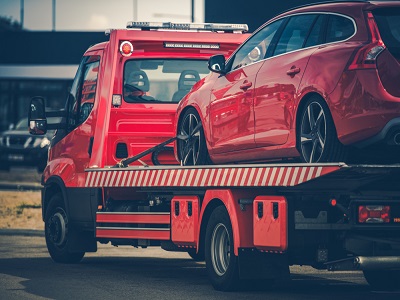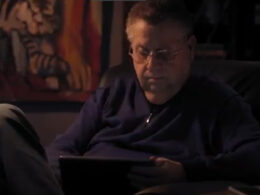Michael Spath of Kapnick Insurance discusses towing and transportation with practice group leader, Keith Tubergen of Kapnick Insurance. Here are highlights from that conversation.
Michael: Welcome to this month’s Ask the Expert with Kapnick Insurance. Talking to our transportation and towing practice leader Keith Tubergen. Keith, thanks very much for joining us.
So Keith, big picture, what does a transportation and towing practice encompass at Kapnick?
Keith: The tow practice is made up of several different facets. You’ve got your sales folks that go out and actually contact clients and try to be part of the associations within our geographic footprint. And then of course you’ve got, I guess what I would say, the brains of the operation back at the office, who are all our service team members who handle the day-to-day tasks from the client.
Michael: What are the unique risks in the towing space that you wouldn’t find in something like real estate?
Keith: There’s so much to real estate to delve into from a coverage standpoint–state to state requirements, laws, financial requirements, loan requirements, things like that. Tow isn’t as in depth but in its own right, it’s got its own unique coverages and risks.
The majority of the clients that we deal with are very well known in the industry; they do a great job. From an insurance standpoint, we’re not so concerned about the practices of that particular client, it’s more how do we let the third parties around them know that they’re there? Right? So how do we do that so that we don’t get hit, people don’t run into us and injure an employee or even injure the individual we’re there to help.
Michael: Is it a challenge to place coverage?
Keith: You can always buy coverage somewhere in this industry, whether it’s for tow trucks or if it’s for buildings or whatever it might be. But to find a good partner that understands this industry, the needs, the challenges–it’s a difficult ask.
Kapnick has been very fortunate in being in this industry as long as we have been. It’s been 35 years or so that we’ve been practicing in this, this niche. We’ve built some good relationships over the years and pride ourselves in the fact that we can go out and get coverage for those clients that are doing things right, so we don’t have to go to excess surplus lines. We can go to a handful of kind of exclusive partnerships in the space and provide a competitive market and premium to this field of the business.
Michael: Tell me a little about like what happens once they connect the car to the tow truck. What other exposures are they taking on the moment they’ve connected themselves to another car?
Keith: There’s two parts to this coverage, and I’ll give you two examples.
So a client goes out and hooks to a car, we’ve got on-hook coverage, right? So that on-hook coverage protects that third party car, with kind of a care custody controller.
The second piece of that is we’ve got clients who’ve got the capacity to hook up to a full tractor trailer unit that’s been broke down or might have been in an accident. And so not only do you have on-hook exposure, at that same time you’ve got a cargo exposure.
Michael: Keith, what about the person that’s driving the vehicle? Should they get in the tow truck with the tower and be driven where they’re going? What should a towing company do when the passenger is inside the vehicle?
Keith: You know, it all depends on the situations and how you’re dispatched to that call. They’re gonna have a little bit different flavor.
Now, most of our motor club business typically say, well, you need to transport that client to the destination of that car, whether it be repair, shop, their home, whatever it might be. Because of course you can’t leave an individual sitting on the side of I-75 at two o’clock in the morning.
These are reviewed prior to dispatching a vehicle, Cuz if you’ve got four people in that vehicle, then there’s a little bit more to that because you know, you’re not gonna be able to fit five people in a tow truck.
So whether the motor club or the municipality takes some responsibility in transporting those folks, I’m not sure, but in most fashions we’ll be able to fit one to two people in the truck. And then again, there’s another big exposure, right? Because if now all of a sudden, we get in an accident on the way back to delivering that auto, and we’ve got injuries, that falls back on that auto liability. So there’s an inherent coverage there that is sensitive as well.
Michael: What type of safety precautions does any particular tower put into place to avoid the worst case scenario? One of the strengths of Kapnick is that the towing practice is not gonna sign clients where we have not done our due diligence and making sure that they’re checking off that list. Are we talking like there’s a list of five things you gotta check off, or there are a list of a hundred things you gotta check off to make sure that you’re in a good place?
Keith: When we look at a new risk, some of the very first questions that we’ll always ask is, how about safety? What are we doing for driver’s training, right? What do you do in the event that you’ve got a new employee coming on board that wants to tow? Then from that point you go into that next step of, okay, once you’ve got that employee in a vehicle, what is it that we expect from that person? Now, insurance most times doesn’t dictate what we can and can’t do within a commercial vehicle, especially a tow truck, because that’s gonna be dictated by the Michigan Public Safety, right? MPSC, or the DOT, which they’ve got their own guidelines.
So now from a state and federal requirement, these drivers are going to be required to drug test, that they are certified, whether it be chauffeur, DOT authorized, and the different levels therein. So that’s a good thing that happens.
And then from an insurance standpoint, we’re saying, okay, are you doing all these things? And if you’re not doing these things, do you have an ongoing safety program? Monthly meetings? Weekly meetings? If you don’t, Kapnick is blessed enough that we’ve got some really talented folks that can assist in that area. And we’ll make sure that we implement those particular policies that can help them perform better, operate better, be safer, and then also make sure they’re being compliant with what the federal and state regulations and requirements are.
Michael: All right. Great stuff. Thank you, Keith, very much for providing us insight into the towing practice at Kapnick.
Keith:. Absolutely. I appreciate it. Thank you.






